Moderate overlap front: original test
Rating applies to 2003-08 models
Tested vehicle: 2003 Subaru Forester 2.5X 4-door 4wd
The Subaru Forester was redesigned for the 2003 model year.
| Evaluation criteria | Rating |
|---|---|
| Overall evaluation | |
| Structure and safety cage | |
| Driver injury measures | |
| Head/neck | |
| Chest | |
| Leg/foot, left | |
| Leg/foot, right | |
| Driver restraints and dummy kinematics | |
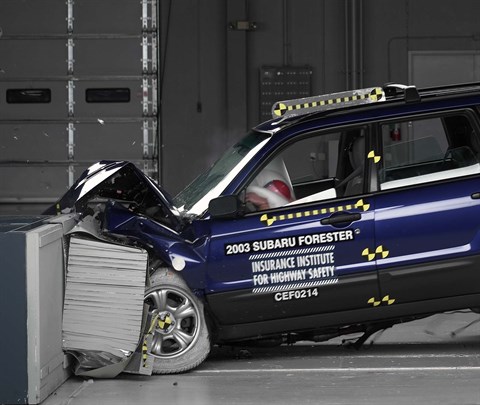
Action shot taken during the frontal offset crash test.

The dummy's position in relation to the steering wheel and instrument panel after the crash test indicates that the driver's survival space was maintained well.

Smeared greasepaint indicates where the dummy's head hit the roof liner during rebound. Head acceleration from this hit was negligible.

Forces on the lower right leg were high enough to indicate the possibility of injury.
Side: original test
Rating applies to 2003-08 models
Tested vehicle: 2003 Subaru Forester 2.5X 4-door 4wd with standard front seat-mounted combination head and torso airbags
The Subaru Forester was redesigned for the 2003 model year.
Two tests of the Forester were conducted. The injury and head protection ratings for the driver are based on just the second test; measures for the driver in the first test were not used because the seating procedure was not comparable to other tested vehicles. Injury and head protection ratings for the rear seat passenger are based on both tests. Structural ratings also are based on both tests.
| Evaluation criteria | Rating |
|---|---|
| Overall evaluation | |
| Structure and safety cage | |
| Driver injury measures | |
| Head/neck | |
| Torso | |
| Pelvis/leg | |
| Driver head protection | |
| Rear passenger injury measures | |
| Head/neck | |
| Torso | |
| Pelvis/leg | |
| Rear passenger head protection In both tests, the dummy's head was hit by the pillar behind the rear passenger door. This pillar is required by federal standard to provide some protection for occupants' heads. | |
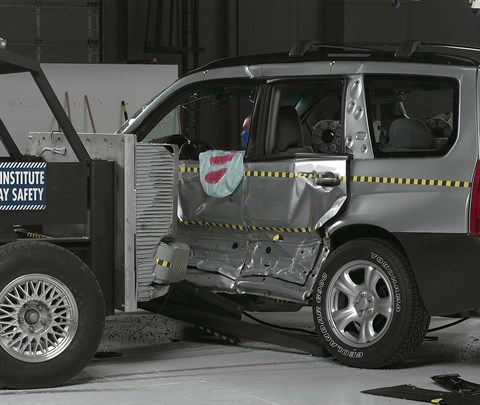
View of the vehicle and barrier just after the crash test.
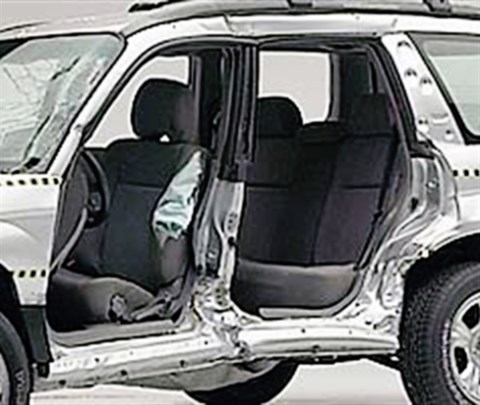
View of the vehicle after the crash with doors removed, showing the side airbag and damage to the occupant compartment.
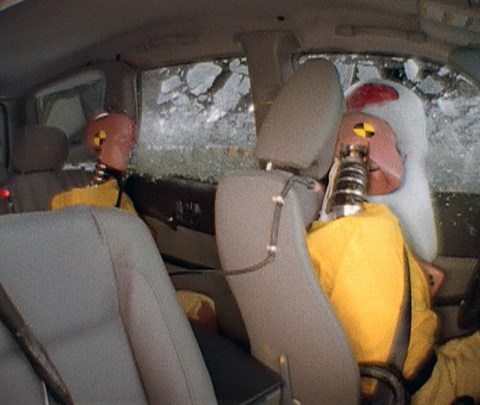
Action shot taken during the side impact crash test showing the driver dummy's head was protected from being hit by hard structures by the side airbag.
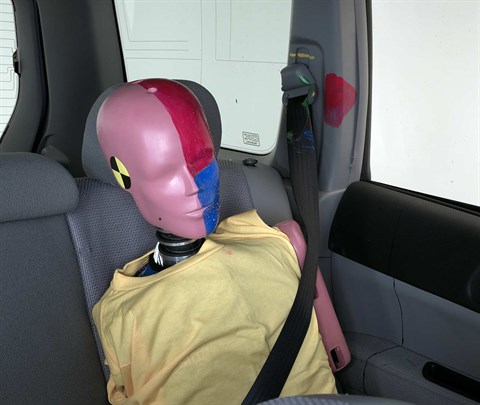
Smeared greasepaint shows where the rear passenger dummy's head was hit by the pillar behind the rear passenger door (second test shown).
Head restraints & seats
Seat type: All seats AHR
| Overall evaluation | |
|---|---|
| Dynamic rating | |
| Seat/head restraint geometry |
About the head restraint & seat test
Currently, IIHS tests apply only to front seats.
